To provide the best experiences, we use technologies like cookies to store and/or access device information. Consenting to these technologies will allow us to process data such as browsing behaviour or unique IDs on this site. Not consenting or withdrawing consent, may adversely affect certain features and functions.
The technical storage or access is strictly necessary for the legitimate purpose of enabling the use of a specific service explicitly requested by the subscriber or user, or for the sole purpose of carrying out the transmission of a communication over an electronic communications network.
The technical storage or access is necessary for the legitimate purpose of storing preferences that are not requested by the subscriber or user.
The technical storage or access that is used exclusively for statistical purposes.
The technical storage or access that is used exclusively for anonymous statistical purposes. Without a subpoena, voluntary compliance on the part of your Internet Service Provider, or additional records from a third party, information stored or retrieved for this purpose alone cannot usually be used to identify you.
The technical storage or access is required to create user profiles to send advertising, or to track the user on a website or across several websites for similar marketing purposes.
 Woven Image brings a renewed sense of connectivity to the workplace with its new collection, Dimensional Connections. By combining three-dimensional textures with the soothing tones of ochre and cinnamon a renewed positive energy is brought into the workplace, whether that be in a home office or in a collaborative corporate environment. Dimensional Connections incorporates Gem the newest addition to the embossed panel series. (more…)
Woven Image brings a renewed sense of connectivity to the workplace with its new collection, Dimensional Connections. By combining three-dimensional textures with the soothing tones of ochre and cinnamon a renewed positive energy is brought into the workplace, whether that be in a home office or in a collaborative corporate environment. Dimensional Connections incorporates Gem the newest addition to the embossed panel series. (more…)





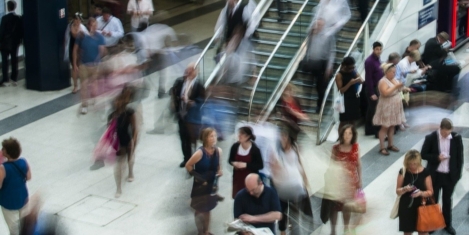
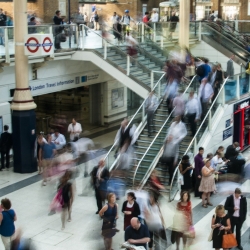 While workers in the UK have been working from home, if they can, for almost a year, a third say they miss commuting, claims research from recruiter
While workers in the UK have been working from home, if they can, for almost a year, a third say they miss commuting, claims research from recruiter 
 Philanthrocapitalism is a term that’s only 15 years old. A modern concept for the modern age. Or is it? In the late 1800s, George Cadbury bought a plot of land five miles south of Birmingham to relocate his factory and expand his chocolate empire. But greater levels of chocolate production weren’t his only concern; he also built an entire village to accommodate the new factory’s workforce. The plan was for this village – called Bournville, which now shares its name with the brand’s famous dark chocolate – to “alleviate the evils of modern, more cramped living conditions”. Port Sunlight, built on the Wirral Peninsula by the Lever Brothers, whose manufacturing company is now part of Unilever, offers up a similar story.
Philanthrocapitalism is a term that’s only 15 years old. A modern concept for the modern age. Or is it? In the late 1800s, George Cadbury bought a plot of land five miles south of Birmingham to relocate his factory and expand his chocolate empire. But greater levels of chocolate production weren’t his only concern; he also built an entire village to accommodate the new factory’s workforce. The plan was for this village – called Bournville, which now shares its name with the brand’s famous dark chocolate – to “alleviate the evils of modern, more cramped living conditions”. Port Sunlight, built on the Wirral Peninsula by the Lever Brothers, whose manufacturing company is now part of Unilever, offers up a similar story. 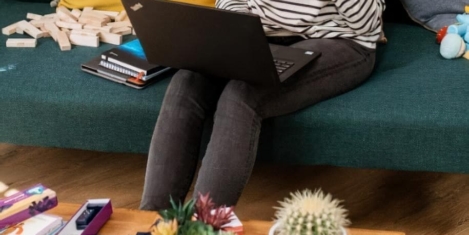
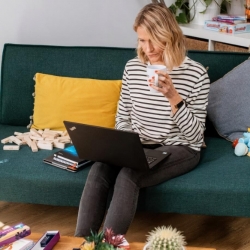 A new generation of long-term homeworkers created by COVID-19 is at risk physically and mentally through inadequate employer support, claims research by
A new generation of long-term homeworkers created by COVID-19 is at risk physically and mentally through inadequate employer support, claims research by 
 New research from Opinion Matters, commissioned by
New research from Opinion Matters, commissioned by 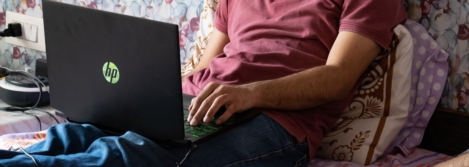
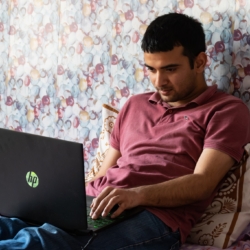 In April 2020, 47 percent of UK employees worked from home and for many, they still haven’t returned to the office. The events of 2020 have been unprecedented, as rules and advice from the government have changed at rapid rates in response to the Coronavirus Pandemic. But one thing that remained relatively consistent is the encouragement for those who can, to work from home.
In April 2020, 47 percent of UK employees worked from home and for many, they still haven’t returned to the office. The events of 2020 have been unprecedented, as rules and advice from the government have changed at rapid rates in response to the Coronavirus Pandemic. But one thing that remained relatively consistent is the encouragement for those who can, to work from home. 
 Companies are searching for ways to reinvent the office and give employees reasons to return to their workplace and a new report by
Companies are searching for ways to reinvent the office and give employees reasons to return to their workplace and a new report by 
 With primary and secondary schools closed to the majority of pupils as of 5 January 2021, many working parents have found themselves with an impossible task. How to juggle a full day of home schooling with a full day of work, all whilst in lockdown?
With primary and secondary schools closed to the majority of pupils as of 5 January 2021, many working parents have found themselves with an impossible task. How to juggle a full day of home schooling with a full day of work, all whilst in lockdown? 
 The past year will go down in history as one of dramatic change. One of the most notable upheavals was the almost overnight transition to full-time remote working for millions of ‘non-essential’ employees. With England now in its third national lockdown, many of us will likely not be going back to our offices until April 2021, over a year since we left them. Even when people are able to return to our old workplaces, just 12 percent of employees want to do so full-time, according to
The past year will go down in history as one of dramatic change. One of the most notable upheavals was the almost overnight transition to full-time remote working for millions of ‘non-essential’ employees. With England now in its third national lockdown, many of us will likely not be going back to our offices until April 2021, over a year since we left them. Even when people are able to return to our old workplaces, just 12 percent of employees want to do so full-time, according to 
 With six weeks still to go until the Chancellor’s Budget, the CIPD is urging the Government to act early to extend the furlough scheme to protect jobs, support incomes and enhance skills development. Its calls are outlined in a report called
With six weeks still to go until the Chancellor’s Budget, the CIPD is urging the Government to act early to extend the furlough scheme to protect jobs, support incomes and enhance skills development. Its calls are outlined in a report called 







January 29, 2021
There is always a brighter side to uncertainty in business
by Portia Hickey • Business, Comment